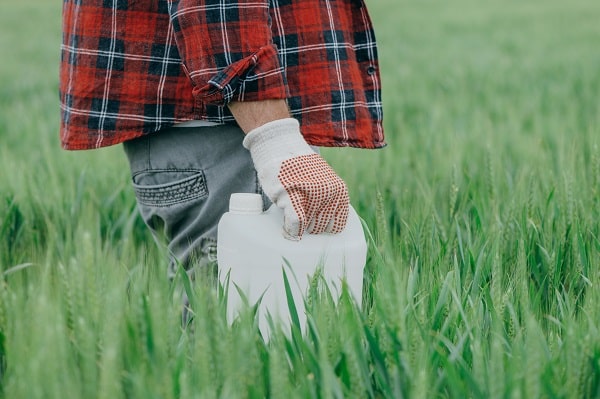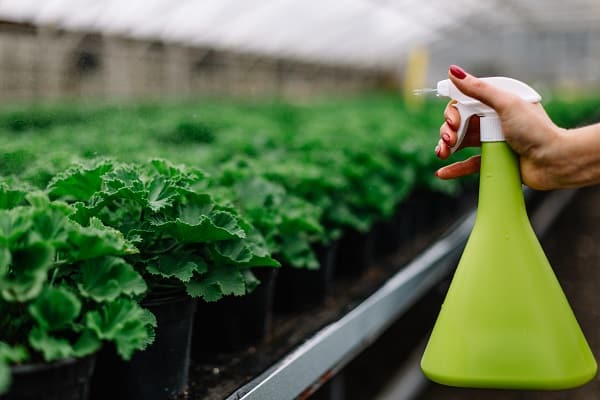In recent years, the use of pesticides in home gardening has become increasingly prevalent. These chemical solutions, commonly perceived as a quick fix to pest issues, can, unfortunately, lead to numerous harmful effects. This post aims to shed light on why you should think twice before using pesticides in your garden. Over the course of this article, you’ll delve into the potential health risks, environmental impact, and the detrimental effect on your garden’s biodiversity, among other related topics. So, let’s dive in and explore why a pesticide-free garden might be the best way forward.
Contents
What Are Pesticides?
Pesticides are chemical substances designed to control, repel, or kill pests that can harm plants, including insects, fungi, and weeds. These substances have been engineered to solve pest problems with efficiency. In home gardening, the most common types are insecticides (for insects), fungicides (for fungi), and herbicides (for weeds). They can be a tempting solution for gardeners, as they promise quick and visible results.
However, the use of pesticides is not without its drawbacks. While they do target pests, the chemical nature of these substances can have implications beyond their intended purpose. Not all insects or microorganisms in your garden are harmful; in fact, many are essential for a healthy garden ecosystem. But, indiscriminate pesticide use doesn’t distinguish between the good and the bad, leading to collateral damage that can upset the delicate balance of your garden’s ecosystem.
The Negative Impact On Human Health
Exposure to pesticides is not just a concern for the environment but for human health as well. Many pesticides used in gardens are classified as potential human health hazards. Depending on the type of pesticide, exposure route, and the amount, they can cause a range of health problems. Short-term effects can include nausea, headaches, and skin irritation, while long-term exposure can lead to more severe issues like cancer, neurological disorders, hormonal disruption, and developmental problems.
This risk is not just for those applying the pesticide but extends to those living in the household, especially children and pets. Children, due to their smaller size and developing bodies, are particularly vulnerable to pesticide exposure. They are more likely to come in contact with pesticide residues, whether it’s through playing on treated grass or touching treated plants. Pets can also easily come into contact with these substances during their outdoor activities and can suffer from similar health problems.
Harmful Effects To The Environment
Beyond your backyard, pesticides have a broader impact on the environment. When sprayed, pesticides can be carried away by wind or rain to other areas, contaminating them in the process. This is particularly problematic for water systems such as streams, rivers, and lakes, where they can harm aquatic life. Furthermore, pesticides can linger in the environment long after they are applied, with some having half-lives of several years.
Pesticides also have a direct impact on soil health, affecting the microorganisms that live within it. These organisms play a vital role in nutrient cycling and maintaining soil structure, both crucial for plant health. By reducing the biodiversity of these helpful organisms, pesticides can harm the very foundation that gardens depend upon, leading to less fertile and productive soils over time.
Pesticide Resistance In Pests
Over-reliance on pesticides can also lead to another significant issue: pesticide resistance. Pests exposed to regular applications of pesticides can develop resistance to these chemicals over time, rendering them ineffective. This resistance occurs due to natural selection, where pests that can survive exposure to the pesticide pass on their resistance traits to their offspring. Over time, a population of pests can emerge that is entirely resistant to a particular pesticide.
The development of pesticide resistance is not just a theoretical concern; it’s a very real problem observed in numerous species of insects, weeds, and plant diseases. As resistance develops, gardeners may feel compelled to use even more pesticides or switch to stronger ones, creating a vicious cycle that is hard to break. This only further exacerbates the health and environmental issues associated with pesticide use.
Pesticides And Pollinators
Pesticides can have a particularly devastating impact on pollinators such as bees and butterflies. These insects play a crucial role in your local ecosystem, pollinating many of the fruits, vegetables, and nuts that make up your diet. Without them, the food system across the planet would be significantly impacted. Yet, many pesticides, particularly a group known as neonicotinoids, have been linked to declines in bee populations, as well as harm to butterflies and other beneficial insects.
Furthermore, by negatively impacting these pollinators, it also risks disturbing the delicate balance of your local ecosystems. For example, birds that rely on insects for food may find their food sources depleted due to the widespread use of pesticides. This can lead to declines in bird populations and potentially impact other species in the food chain. The loss of biodiversity in your garden and local environment is a high price to pay for the temporary control of pests.
The Impact On Biodiversity
Pesticides can significantly reduce biodiversity in your garden. As previously mentioned, pesticides are not selective; they can harm beneficial insects, other wildlife, and pests. A diverse garden with a variety of plants, insects, birds, and other organisms is not just more enjoyable to observe; it’s also more resilient to pests and diseases. This is because biodiversity often helps keep potential pest problems in check, with various organisms playing different roles within the ecosystem to maintain balance.
By killing off a broad range of organisms, pesticides can disrupt this natural balance, making your garden more susceptible to pest infestations and disease outbreaks. As biodiversity declines, so does the resilience of the ecosystem, which can lead to more prominent and more frequent pest issues in the long run. This is the exact opposite of what most gardeners using pesticides hope to achieve, illustrating the counterproductive nature of indiscriminate pesticide use.
The Hidden Costs Of Pesticides
On top of the health and environmental costs, using pesticides also has financial implications. Initially, purchasing pesticides might seem like a small expense compared to the potential loss of plants due to pests. However, the repeated and continuous application of these substances can quickly add up, making it a recurring cost for gardeners.
Additionally, the potential health costs associated with pesticide exposure can be significant. Medical bills for treating acute reactions or chronic conditions can be high. It’s also worth considering the potential impact on property values if your garden becomes known for heavy pesticide use, as more and more homebuyers are looking for homes with eco-friendly, healthy gardens. The financial costs, when combined with the environmental and health impacts, make a compelling case against using pesticides in your garden.
Consider The Implications Of Using Pesticides In Your Garden!
When exploring the evidence, it becomes clear that the risks and negative impacts of using pesticides in your garden far outweigh the temporary benefits. While they may offer a quick solution to pest problems, their usage can have lasting and far-reaching consequences. The potential harm to human health, particularly in children, can’t be ignored, and the environmental impact is profound, affecting not only your local garden ecosystems but also our water systems and broader biodiversity. So before reaching for a pesticide, it’s important to take a step back and consider the long-term implications of your actions.






